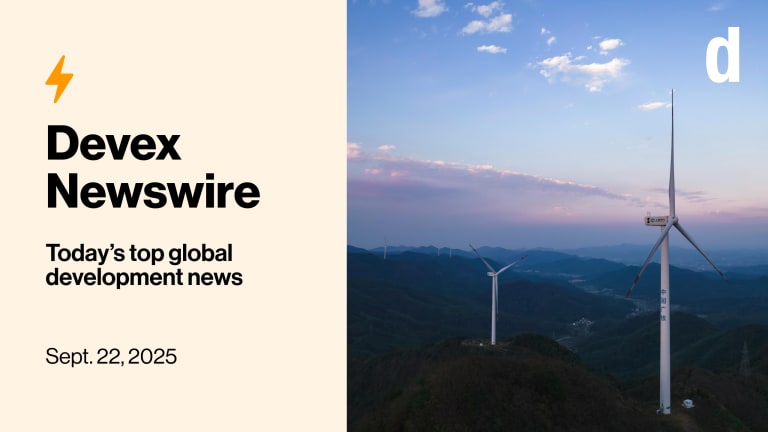
Name: Dan Runde
Title: president of the Society of International Development’s Washington chapter, chair of the 2011 SID World Congress, Schreyer Chair in Global Analysis and director of Project on Prosperity and Development at the Center for Strategic and International Studies
Home: McLean, USA, and Buenos Aires, Argentina
Currently in: McLean, Virginia
Working on: the challenges of middle-income countries and how the United States and others can “repurpose” their relationship with them
What does it take to prepare for a huge gathering such as the 2011 SID World Congress July 29-31?
I think it requires a lot of patience, a very strong sense of humor, the need to think big and to be diplomatic at times and frank at others.
That’s sort of the bigger picture. In terms of the actual program, we said we had two goals: The first was to have an excellent program. We really have gone all out and got President Robert Zoellick of the World Bank, President Donald Kaberuka of the African Development Bank, Gayle Smith of the National Security Council, former President John Kofi Agyekum Kufuor of Ghana.
We really have an excellent program, with a total of 100 speakers from all lover the world; the majority is not American.
We have a very diverse and interesting program at an interesting and critical moment for development. Now is the moment for a broader discussion amongst development actors to think about what’s next, because further increases in ODA budgets are not on the table. It’s not responsible, it’s delusional, to think that’d be the case. So, we have to think creatively, think about how we bring in other actors, think about how we leverage the variety of resources.
From a program standpoint, we’re trying to capture all of that. The second goal that we had was to have 1,000 people – and we’re on track for having 1,000 people, a large part of them from overseas, which will make a difference to the typical Washington conference.
Those are our two goals, to have a great program and a great crowd. It’s been a big lift but we’re very happy.
SID was founded 50 years ago. What will we be talking about at the SID World Congress in 50 years?
I think in another 50 years from now, we’re going to be talking about finishing the democratic revolution. Instead of having half the world, most of the countries will have some sort of representative democracy, so there’ll just be a few dark corners left.
So, there’ll be something about finishing the job. There’ll be something else about further empowering the entrepreneurship revolution. And there’ll be something on what to do in a world of food abundance.
You’re very optimistic. What is the most frustrating response you get when you talk about including the private sector more in international development?
I think there’s been a real mind-shift in the last 10, 15 years on this topic, both in terms of seeing the private sector as partners, but also understanding that job creation comes from the private sector. The mind-shift in the development community is supporting that process.
It may not fully be reflected in how we allocate resources of money and people and thinking. But there’s been a recognition, an intellectual breakthrough, and sort of a slower following behind of the appropriate resources to back that thesis up. It’s a different world than it was 10 years ago, 20 years ago.
I think that’s much more developed in the United States, and there’s still a novelty component to it in some parts of Europe and Japan and in some traditional development communities. But, there’s certainly a recognition in the multilateral communiqués of the G-20 and U.N. system, the World Bank – you see it reflected in the rhetoric. The challenge is to let the resources and energy follow over time.
I’m supposed to ask three questions only, but can’t help but add another: Do you see yourself as a development professional or a think tanker?
That’s a very interesting question. I see myself as a person at the intersection of development, foreign policy and private business. And I see myself as bringing my practitioner perspective and my government experience to the think tank and research world with the goal of further shifting the way people think about development, and then over time influencing the allocation of resources, because that’s one of the things you want to see results in, having people shift the way they allocate resources of people, money, time and energy.
Read more:








